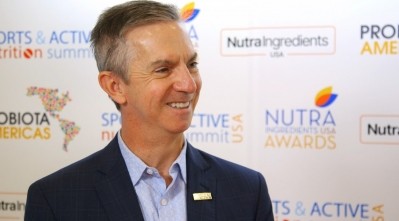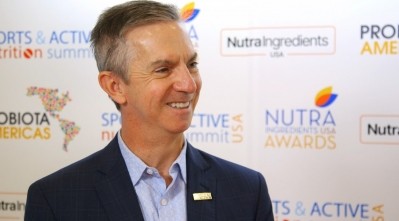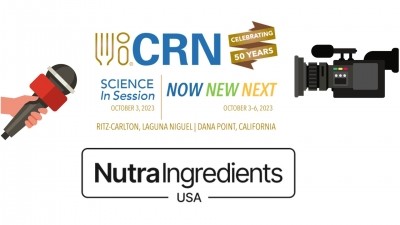CRN at 50: Our underlying values haven’t changed
In 1973, William Thompson, II, president of the W.T. Thompson Company, George Crawford, VP of Archon Pure Products Corporation, and Nolan Draney, Exec. VP of Plus Products Corporation, envisaged a CRN offering a ‘moderate, rational, scientifically-based voice on dietary supplement issues’.
By 1983, the association had grown to 33 voting member and 11 associate members. Today, as the association celebrates its 50th year, CRN has more than 200 companies that manufacture dietary ingredients and/or dietary supplements, or supply services to those suppliers and manufacturers.
Speaking with NutraIngredients-USA, Mister, who joined CRN in 2005, said that, while the industry is different in some respects, the underlying values that led to the formation of CRN really haven’t changed.
“The association has embodied them throughout the entire 50 years, and hopefully we still are today,” he said.
“The companies that started CRN had three values that they thought needed to drive the association,” said Mister. “You’ll remember this [1973] was just before the Proxmire Amendment was passed, and FDA was making overtures to try to regulate vitamins as drugs if they exceeded the daily value. So, you could only go up to the daily value as a supplement if FDA’s regulations had been allowed to stand.
Those three key principles, said Mister, were that the decision making needed to be driven by science, there needed to be some guardrails around the industry if it was going to grow, and industry needed to act in such a way that it was worthy of being respected.
Acceptance
NutraIngredients-USA interviewed Mister in 2013 when CRN turned 40, and at that time he predicted that 10 years in the future – in other words, today – that there would be “much more, if not universal, acceptance of supplements”.
“I think we’ve made a lot of progress,” said Mister. “Obviously we’re not there yet… We’re still pursuing that universal acceptance of supplements.
“In 2013, we were talking about 64 or 65% of Americans using our products, now we’re up over three quarters of Americans, so that acceptance has clearly grown over the years,” he said. “I think the pandemic, as awful as it was, one of the positive things that came out of it was even more consumers taking a proactive role in their healthcare, and getting more concerned about what they can do for better health. So, in those respects, I think we have made progress.
“I’m not sure we’ve made a lot of progress on the regulatory front. We’ve got some real concerns today with FDA. We’re still battling with some of the same issues that we were when CRN was 40. Now that we’re 50, we’re still asking FDA to do more in the way of regulation, do more in the way of consistent enforcement of the law, implementation of the NDI program in a way that makes sense both for consumers and for industry.”
DSHEA at 30
CRN is celebrating 50 years this year, but next year will mark the 30th anniversary of the passage of the Dietary Supplement Health and Education Act (DSHEA) the law that created the modern industry and that has remained relatively untouched for three decades. However, conversations around the modernization of the regulations for dietary supplements have been intensifying in recent years, with proposals from FDA and some sections of the industry for change.
“We’re huge proponents that the bones of the house are good, that the framework still works,” Mister told us. “It was a visionary framework for how supplements would be regulated. And it did balance consumer safety on one hand, with consumer access on the other.
“We’re not looking to upend the bones of the house. They are still very structurally sound. But, with 30 years and a lot of changes in society, there are some things that need to be tweaked,” he said.
“The way we talk about some of our claims, the current requirements are very restrictive, so even when there is good, truthful science, very rigorous studies that show benefits for supplements, in some cases we cannot even put them on our own websites because they might suggest there’s a disease prevention or something.
“Mandatory listing is another thing. Mandatory listing is an effort to give FDA some visibility into the breadth of this industry that’s very different for a $60 billion industry than when it was $4 billion.
Mister also said his association and members are looking at the drug preclusion provision, whereby an ingredient that is investigated as a drug cannot then be used in supplements (but a supplement ingredient can transition to being a drug).
“With 30 years of hindsight we understand now that that provision, that, while well intended, maybe was not as artfully written as it needed to be, and it has left itself open to some misinterpretation, which shuts down innovation on our side of the industry.”
There are also the recent proposals by the FDA to reorganize its human foods program, including folding the Office of Dietary Supplement Programs into a new Office of Food Chemical Safety, Dietary Supplements, and Innovation.
All five industry associations aligned against this reorganization, noted Mister, while industry supporters and critics in Congress have also voiced concerns about the proposal.
“The reorg, while needed, the proposal to do away with a separate office of dietary supplements and subsume it into something else is not a good thing, given how pervasive our products are in the marketplace and the amount of regulatory attention that’s called for in the statute, they need to have an office that’s dedicated to these products,” said Mister.
“We’re afraid that the industry may be backsliding because we need a strong agency that understands our importance to consumers and is willing to put some resources to it.”
Crystal ball time…
Mister was also asked to look ahead to CRN at 60, and give his view of what the association and industry will look like a decade from now. “We’ll still be moving towards that universal acceptance. Hopefully we’ll be getting closer that 100% than we are today,” he said. “When we look at the trajectory of the science, we are understanding more and more about nutritional needs, how the body collectively acts with these products. The science is going to continue to explode.”
The 50th Anniversary will be the central theme at CRN’s Annual Conference, which will take place October 3-6 at the Ritz Carlton, Laguna Niguel - Dana Point, CA. For more information, please click HERE.
















